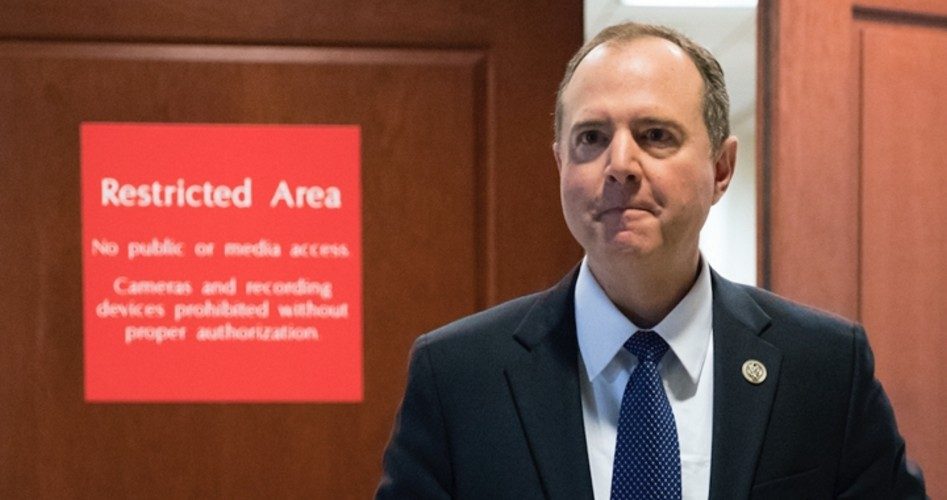
As promised, the House Intelligence Committee voted on Monday to publicly release the Democrat memo rebutting the FISA memo released last week. The vote to release the Democrat memo was unanimous.
The “Nunes memo” or “Republican memo” (as it now being called) is four pages and lists some damning information about FBI and Department of Justice (DOJ) abuses to the FISA process in obtaining a surveillance warrant for Trump campaign associate Carter Page. The “Democrat memo” is 10 pages and reportedly offers a rebuttal to the claims of the Nunes memo. Like the previous memo, with this passing vote, the president has five days to either approve of the release of object. If he approves, the memo could be released by the weekend.
Democrats have said that the Republican memo contains “material omissions” and “errors.” Their memo will presumably address those claims. Of course, Democrats also previously claimed that the release of the Republican memo would threaten national security and reveal sources and methods used to gather intelligence. When the Republican memo was released, it was unredacted and did not contain the things Democrats had claimed.
Besides the length and the content, perhaps the biggest difference between the two memos is that Republicans readily approved of releasing the Democrat memo, while every Democrat on the committee not only voted against releasing the Republican memo to the public, they also voted against even allowing other members of the House to see it.
Representative Adam Schiff (D-Calif.; shown) was one of the most vocal opponents of releasing the Republican memo. In fact, he — along with Senator Dianne Feinstein (D-Calif.) — went so far as to sign an open letter to the CEOs of Facebook and Twitter to ask that they censor social media posts demanding the release of the Republican memo, claiming that the success of the #ReleaseTheMemo campaign was because of Russian bots. An internal investigation by Twitter showed that the posts were being made by ordinary Americans — real people — who were upset at Democrats trying to block the memo’s release.
For the Democrat memo, no social media campaign was needed. In fact, Representative Devin Nunes (R-Calif.) said last week he would not fight the release of the Democrat memo. Nunes told Fox News on the same day the Republican memo was released that the Democrat memo would be released, saying, “but it has to go through the same process” as the Republican memo. Three days later, it was voted on and no Republicans voted to block its release.
It appears that even that is not enough to satisfy some Democrats. Schiff — whose behavior and bogus claims over the Republican memo gave birth to the #FullOfSchiff social media hashtag — is still looking for windmills to tip. Predicting that President Trump will attempt to block the release, Schiff is already preparing for a response, telling reporters after Monday’s vote, “I think it’s going to be very hard for the White House, like it was hard for the Republicans on the committee, to block the release of this.” Schiff went on to say, “I am more concerned that they would make political redactions.”
Considering the length of the memo — two and half times the length of the Republican memo — and the nature of the intelligence involved, it is possible that the Democrat memo will contain redactions. Schiff seems to protest too much — and too early.
White House Spokesman Raj Shah told reporters aboard Air Force One that the Democrat memo would be considered “along the same terms that we considered the Nunes memo — which is to allow for a legal review — national security review — led by the White House Counsel’s Office.”
Of course, if the Democrat memo meets the legal standard and does not endanger national security or other concerns, it should be released. The American people have a right to hear every side of this issue and judge for themselves. Even if Democrats don’t see it that way.
Photo of Rep. Adam Schiff: AP Images




